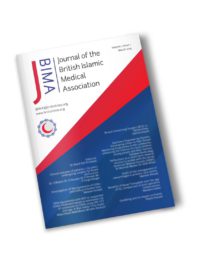Inherent reference is given to focusing on and maintaining good mental health in Islam however, Muslim communities appear to continue to underutilise mental health services. Muslims have been reported to experience a range of barriers preventing them from accessing these services with Muslims at a significant disadvantage when using these mental health services in the UK1. When accessing mental health services, Muslims experience a lower recovery rate (40%) compared to Christians and Jews (55% and 50% respectively)2.
We conducted a scoping review consisting of a review of contemporary literature and reflected on our own experiences in healthcare to gain a better understanding about these barriers and consider why they may exist, their repercussions on the Islamic community and methods to improve this.
Barriers that exist for the Muslim population include socio-economic status, mental health stigma, poor mental health literacy, racism and Islamophobia. There is also belief of mental health difficulties associated with the ‘evil eye’, black magic or even as a punishment from God. Many Muslims also find it difficult to seek help from those they feel would not understand their faith or culture.
Solutions lie in increasing mental health literacy, raising awareness of mental health issues in the Muslim community, breaking down the associated stigma and inspiring communities to access support with their mental wellbeing. A multitude of organisations have recognised these barriers and work towards providing a faith and culturally sensitive support system to Muslims that is confidential and non-judgemental. These include Muslim Youth Helpline, Inspirited Minds, the Lantern Initiative and Muslim Community Helpline. Mind have also worked with local Muslim groups to build their capacity of mental health services including Bradford, East London, Suffolk and Rochdale. Further work needs to be done to achieve more in relation to accessing mental health services for Muslims.
References
- Meer S, Mir G, Serafin A. Addressing depression in
Muslim communities. Leeds, UK: University of
Leeds, 2012. - Alharbi H, Farrand P, Laidlaw K. Understanding the
beliefs and attitudes towards mental health problems
held by Muslim communities and acceptability of
cognitive behavioural therapy as a treatment:
systematic review and thematic synthesis protocol.
BMJ Open 2021;11:e044865. - Initiative, T.L., 2021. Muslim Mental Health: The
services and organisations you can contact. Amaliah.
Available at:
https://www.amaliah.com/post/57144/mental-health
in-islam-muslim-therapists-and-councillors

